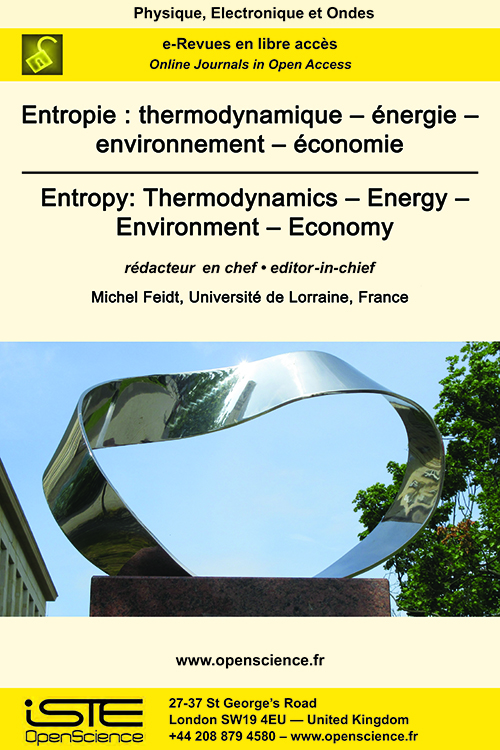

Physics > Home > Entropy: Thermodynamics – Energy – Environment – Economy > Issue
In this article, after reminding the present definition of the term « heat », its evolution is summarized with focusing on the mode of heat conduction. The notion of heat has been discussed from antiquity either in East or West. First based on a sensation of hot or cold, the notion of heat for a long time has been confused with that of temperature. Two types of theories have been simultaneously developed, substantialist theories and mechanistic theories. The progression of these two types of theories has been reported from antiquity to present times. At the beginning was the Aristotelian categorization, then the phlogiston theory and, after the theories of caloric and ether for which heat is a substance but, it is shown that as soon as antic times the motion of matter corpuscles also has been associated to heat. Nevertheless, many researchers at the end of the 18th century and the beginning of 19th did not want to take sides, as did Fourier, who has formalized heat conduction in his pioneering work and who is the reference. The corpuscular interpretation is by now accepted and has followed the physics evolution especially with the quantum mechanics. So, heat conduction is associated with particle interactions and with atomic vibrations in solids. In this context, the use of the phonon quasi-particle has contributed to a large part to the present developments.
In the research on the origin of life, topics that can be considered reasonably shared by the generality of researchers are initially identified. The application of these principles to the results obtained with the mathematical model for the simulation of aggregative processes developed by the authors (and the subject of previous publications) leads to the conclusion that the primordial formation of self-replicating structures is difficult to reconcile with deterministic aggregative dynamics in the classical sense. Regardless of the extent to which the process is governed by chance or by aggregative codes written in the laws of chemistry, no conventional causality is likely. Indeed, when the model is applied to the simulation of aggregative processes in the absence of guiding elements (that is code-carrying agents, also capable to promote catalytic effects) as is likely to have been the case in the prebiotic world, the repetitive and ordered formation of sufficiently complex structures implies an entropy deficit that is difficult to justify in a classical context. Only one way out seems possible: the existence of information sets that affect the evolution of the system according to modalities other than those that depend on the flow of perceived time. The possibilities offered by quantum mechanics and its most recent interpretations are con-sequently investigated to try to shed some light, at the level of particle physics, on this enigmatic and unconventional con-jecture.

2026
Volume 26- 7
Issue 12025
Volume 25- 6
Issue 12024
Volume 24- 5
Special issue LILA 22023
Volume 23- 4
Issue 12022
Volume 22- 3
Issue 12021
Volume 21- 2
Special issue2020
Volume 20- 1
Issue 1